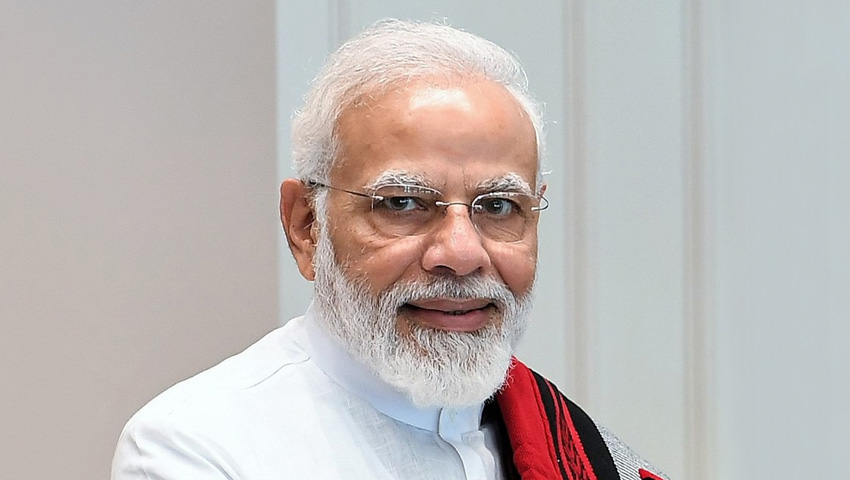A senior fellow at the US Studies Centre assesses whether the Quad can depend on New Delhi to counter-balance Beijing’s threat to regional stability.
To continue reading the rest of this article, please log in.
Create free account to get unlimited news articles and more!
Early indicators suggest that US President Joe Biden plans to build on his predecessor’s China policy, with the 46th president maintaining the Trump administration’s tough stance on Beijing.
Most recently, President Biden proposed that the next meeting of the Quadrilateral Security Dialogue (the Quad) be attended by leaders, rather than the foreign ministers, of the member nations — the US, Australia, India and Japan.
According to Professor James Curran, non-resident senior fellow at the United States Studies Centre, this move would “intensify the Quad’s strategic signalling to Beijing”.
He continues: “It chimes with the call from Biden’s National Security Adviser, Jake Sullivan, for a ‘chorus of voices’ to push back against China.
“Channelling Dean Acheson, Harry Truman’s secretary of state, Sullivan sees the Quad as creating ‘situations of strength’ in meeting the China challenge.
“That language alone should dispel any lingering doubts that this new White House might avert its eyes from the same Cold War missal as its predecessor.”
This, Curran writes, ramps up Washington, Canberra and Tokyo's expectations concerning India’s potential role as a “counterweight” to China, with the Asian powerhouse increasingly “pushed closer” to the US.
Curran points to the deterioration in New Delhi’s relationship with Beijing, particularly following last year’s border clashes, which led to the deaths of 20 Indian soldiers during skirmishes with Chinese forces.
The analyst quotes India’s Foreign Minister Subrahmanyam Jaishankar, who noted the impact of border clashes on local sentiment towards China.
However, Curran questions whether India is capable of rising to the challenge, quoting former Australian Department of Foreign Affairs and Trade secretary and high commissioner to India, Peter Varghese, who said India’s assumption of a greater strategic role would hinge on “how quickly and effectively it can move on the economic front”.
Curran writes: “What type of recovery India records after the hit of COVID-19 is as yet unclear. Economic growth was stalling before the pandemic.”
The senior fellow cast doubt over Indian Prime Minister Narendra Modi’s willingness to “expand his vast political capital” on a bold reform agenda, which would support the country’s member of the Regional Comprehensive Economic Partnership.
Curran goes on to express that India’s shared values — Westminster democracy, the rule of law and a free press – have not guaranteed broader strategic co-operation.
Drawing on Australia’s relations with India, Curran quotes Barry Humphries, who contends that the Canberra-New Delhi relationship appears to be “endlessly coming of age”.
“Malcolm Turnbull talked of a relationship ‘underdone’. But it has been underdone for decades,” Curran states.
“Speaking in New Delhi in 1974, Gough Whitlam said there was ‘too much of the feeling that we can take each other for granted’.”
Curran argues that part of the reason why India’s relationship with Australia has failed to mature is the unrealistic expectations set on the nation.
“No sooner had a raft of outdated clichés about cricket and the Commonwealth been heaved overboard than commentators saddled India with two herculean tasks: the first, that it be the counterweight to China; the second, that in the face of Beijing’s economic coercion it be the El Dorado of trade diversification,” he writes.
But, according to Curran, these obstacles “pale in comparison” to the “alarming trend of illiberalism” in India.
“This is most visibly manifest in Modi’s extreme pushing of the Hindu nationalist cause and its persecution of Muslims, India’s largest minority,” he writes.
“But he has also undermined the independence of the judiciary and freedom of the press.
“In a recent interview, former Indian vice-president [Hamid] Ansari referred to this as ‘hyper nationalism’ and ‘strident nationalism’, a development he said was making India intolerant, arrogant and insecure about its place in the world.”
From an Australian perspective, Curran continues, India’s secular, liberal, democratic character is “fundamental” to its attractiveness as a strategic partner.
As such, Curran revisits remarks made by Varghese, who notes that India’s slow departure from traditional democratic norms would undermine any efforts to build a stronger strategic relationship.
Varghese observes: “Ultimately, what’s driving regional concern about China is the character of its political system. So, if that’s the starting point for your strategic analysis, then what is currently happening in India cannot be decoupled from the question of shared values.”
Curran concludes: “Modi’s authoritarian populism is putting the resilience of India’s democratic credentials under their severest strain since the mid-1970s.
“That will test the strategic logic driving Australia and India closer together.”
Get involved with the discussion and let us know your thoughts on Australia's future role and position in the Indo-Pacific region and what you would like to see from Australia's political leaders in terms of partisan and bipartisan agenda setting in the comments section below, or get in touch with

 Login
Login







